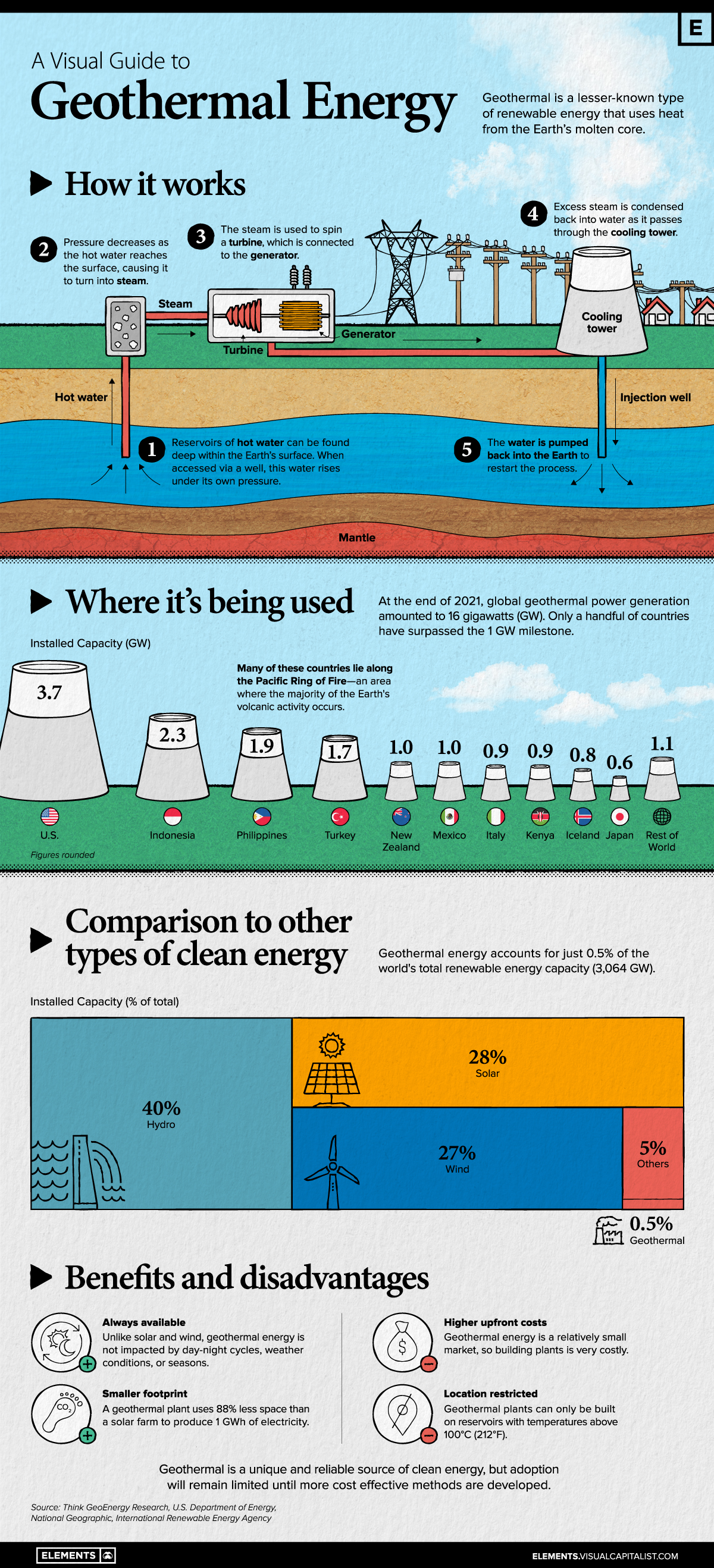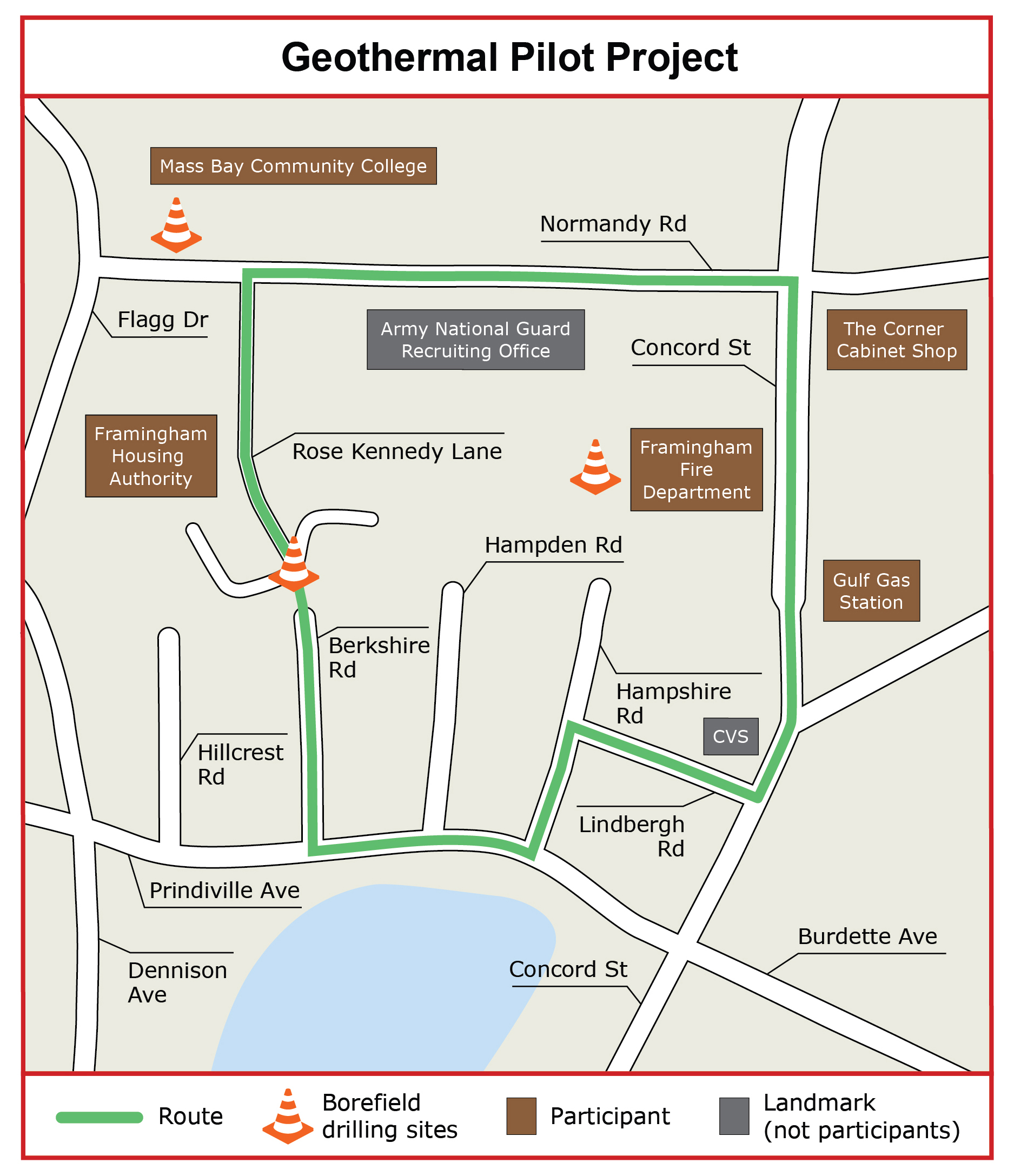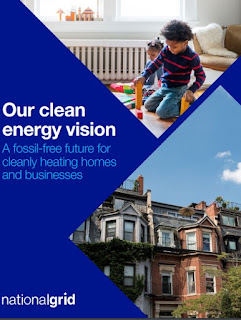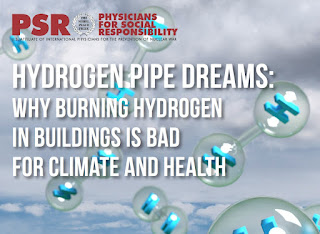Providing accurate and timely information about what matters in Franklin, MA since 2007. * Working in collaboration with Franklin TV and Radio (wfpr.fm) since October 2019 *
Friday, January 30, 2026
'The LED of heating': cheap geothermal energy system makes US comeback
Friday, June 14, 2024
In this episode we go from elections, to sustainability, to local action as Ted helps me make sense of climate (audio)
FM #1237 = This is the Franklin Matters radio show, number 1237 in the series.
This session of the radio show shares my conversation with Ted McIntyre, Franklin resident and climate activist. We met to record at the Franklin TV & Radio studio on Tuesday, June 11, 2024.
We continued making sense of climate by working our way from good weather to Mexico’s election of the first woman president (also a climate scientist) to the pros/cons advocating for a “Sustainability Director”, to local activity in lieu in action by government bodies, to the potential of the MA climate omnibus containing an authorization of nuclear power as ‘clean’ and touched on a few other topics along the way.
This discussion continues our journey understanding the MA roadmap toward net zero and while it helps me “make sense of climate”, we hope it helps with your understanding as well.
If you have climate questions or Franklin specific climate questions, send them in and we’ll try to answer them in a future session.
The conversation runs about 49 minutes. Let’s listen to my conversation with Ted.
Audio link -> https://franklin-ma-matters.captivate.fm/episode/fm-1237-making-sense-of-climate-46-06-11-24--------------
Articles referenced along the path of our discussion:
Sabrina Shankman article on sustainability director
https://www.franklinmatters.org/2024/06/theres-secret-for-mass-cities-and-towns.html
Claudia Sheinbaum
https://en.wikipedia.org/wiki/Claudia_Sheinbaum
C40 - Michael Bloomberg
Pemex - The Mexican oil Company (not PetroMex as mentioned in our conversation)
https://en.wikipedia.org/wiki/Pemex
Seabrook Station is still operating with a license authorized through 2050 (2nd largest to Millbrook in CT)
https://en.wikipedia.org/wiki/Seabrook_Station_Nuclear_Power_Plant
Geothermal microdistrict in Framingham
MIT spinoff to develop drilling for geothermal power
** See the page that collects all the “Making Sense of Climate” episodes -> https://www.franklinmatters.org/2022/02/making-sense-of-climate-collection.html
--------------
We are now producing this in collaboration with Franklin.TV and Franklin Public Radio (wfpr.fm) or 102.9 on the Franklin area radio dial.
This podcast is my public service effort for Franklin but we can't do it alone. We can always use your help.
How can you help?
If you can use the information that you find here, please tell your friends and neighbors
If you don't like something here, please let me know
Through this feedback loop we can continue to make improvements. I thank you for listening.
For additional information, please visit www.franklin.news/ or www.Franklinmatters.org/
If you have questions or comments you can reach me directly at shersteve @ gmail dot com
The music for the intro and exit was provided by Michael Clark and the group "East of Shirley". The piece is titled "Ernesto, manana" c. Michael Clark & Tintype Tunes, 2008 and used with their permission.
I hope you enjoy!
------------------
You can also subscribe and listen to Franklin Matters audio on iTunes or your favorite podcast app; search in "podcasts" for "Franklin Matters"
Friday, January 26, 2024
Heating at Franklin Field in Dorchester to be converted to geothermal
"As the Boston Housing Authority works toward an ambitious goal of going fossil-fuel free, its path to success could begin at the Franklin Field complex in Dorchester.Mayor Michelle Wu joined officials from the BHA and National Grid at Franklin Field on Thursday to unveil details of a plan to convert the heating system for 129 public housing units there to an electricity-powered geothermal system. The project would replace the 20-year-old gas-fired boiler in use today.BHA administrator Kenzie Bok said the idea can be traced back to Wu’s announcement a year ago that the BHA would wean itself off fossil fuels by 2030. BHA officials first considered using air-source heat pumps to replace the aging boiler but found that National Grid’s centralized geothermal proposal would be more cost efficient.“The first step in going fossil-fuel free is not to put in new fossil fuel infrastructure,” Bok said."
Monday, December 26, 2022
The Visual Capitalist: "A Visual Crash Course on Geothermal Energy"
 |
| The Visual Capitalist: "A Visual Crash Course on Geothermal Energy" |
Wednesday, November 2, 2022
Ted & I talk microgrids and more in this 18th episode of Making Sense of Climate - 10/25/22 (audio)
This session of the radio show shares my conversation with Ted McIntyre, Franklin resident and climate activist. We recorded this via the Zoom conference bridge Tuesday, October 25, 2022.
In this episode our conversation covered the following topics:
Microgrids
South Carolina residential building auto based
DPU and municipal aggregation approval cycle
Building code, stretch code revisions pending
Offshore cable system
Mother Jones says ‘microgrids’ are good
This discussion continues our journey understanding the MA roadmap toward net zero and while it helps me “make sense of climate”, we hope it helps with your understanding as well.
If you have climate questions or Franklin specific climate questions, send them in and we’ll try to answer them in a future session.
The conversation runs about 40 minutes. Let’s listen to my conversation with Ted
Audio file -> https://franklin-ma-matters.captivate.fm/episode/fm-870-making-sense-of-climate-18-10-25-22--------------
microgrid - Merriam Webster added the word in September
https://www.franklinmatters.org/2022/10/merriam-webster-we-added-370-new-words.html
teaser to come back to microgrids
South Carolina massive residential building underway in 'low country' outside of charleston.
no mass transit, while 55 housing is being built, all are hostage to the automobiles
not sustainable for net zero, or for those 55+ who as they age are going to be standed out there
municipal aggregation, we have it, others can't get it
public ownership of utilities I don't think it the answer, we need to ensure appropriate board and oversight of the utilities doesn't create/continue the fossil fuel domination
https://www.repmikeconnolly.org/public_ownership_of_public_utilities
Hard to find a good contractor.--- this will be important as we go forward in MA>
offshore cable system, rather than extending electric grid above ground
https://www.wbur.org/news/2022/10/18/offshore-wind-transmission-lines-grid
microgrids, Mother Jones article
Eversource/Framingham pilot construction updates https://www.eversource.com/content/ema-c/residential/about/transmission-distribution/projects/massachusetts-projects/geothermal-pilot-project
See the page that collects the “Making Sense of Climate” episodes -> https://www.franklinmatters.org/2022/02/making-sense-of-climate-collection.html
--------------
We are now producing this in collaboration with Franklin.TV and Franklin Public Radio (wfpr.fm) or 102.9 on the Franklin area radio dial.
This podcast is my public service effort for Franklin but we can't do it alone. We can always use your help.
How can you help?
If you can use the information that you find here, please tell your friends and neighbors
If you don't like something here, please let me know
Through this feedback loop we can continue to make improvements. I thank you for listening.
For additional information, please visit Franklinmatters.org/ or www.franklin.news/
If you have questions or comments you can reach me directly at shersteve @ gmail dot com
The music for the intro and exit was provided by Michael Clark and the group "East of Shirley". The piece is titled "Ernesto, manana" c. Michael Clark & Tintype Tunes, 2008 and used with their permission.
I hope you enjoy!
------------------
You can also subscribe and listen to Franklin Matters audio on iTunes or your favorite podcast app; search in "podcasts" for "Franklin Matters"
 |
| Eversource/Framingham pilot construction update |
Saturday, August 6, 2022
"roughly 100 U.S. colleges and universities have installed geothermal systems on their campuses"
"Often described as a giant tower of Jenga blocks, Boston University’s Center for Computing and Data Sciences shows no outward signs of leading the race to sustainable energy design. No rooftop wind turbines grace its heights; no solar panels are mounted on the multiple roof decks jutting out from the building’s core.What makes this building unique lies deep underground, where water circulating through 31 geothermal boreholes will supply 90 percent of its heating and cooling needs when the building opens, as scheduled for later this year. Through a process called geothermal heat exchange, water pumped from 1,500 feet underground will draw upon the near-constant temperature that prevails beneath the earth’s surface – 50 to 60 degrees Fahrenheit year-round.
Even on the coldest New England days, water prewarmed by the earth will be circulated through heat pumps that will further raise its temperature to deliver heat where needed. On warmer days or in heavily occupied spaces where heat builds up even in winter, the heat exchangers will draw on the earth’s cooler temperature to provide air conditioning."
 |
| In the summer, heat is extracted from the home, and is discharged into the earth. In the winter, the process is reversed. (Source: Solar Review) |
Thursday, July 7, 2022
Making Sense of Climate with Ted McIntyre #12 - 06/23/22 (audio)
FM #826 = This is the Franklin Matters radio show, number 826 in the series.
This session of the radio show shares my conversation with Ted McIntyre, Franklin resident and climate activist. We recorded this via the Zoom conference bridge Thursday, June 23, 2022.
This discussion continues our journey understanding the MA roadmap toward net zero and while it helps me “make sense of climate”, we hope it helps with your understanding as well.
If you have climate questions or Franklin specific climate questions, send them in and we’ll try to answer them in a future session.
The conversation runs about 36 minutes. Let’s listen to my conversation with Ted.
Audio file -> https://franklin-ma-matters.captivate.fm/episode/fm-826-making-sense-of-climate-12-06-23-22--------------
Articles referenced in this episode are collected in one PDF
https://drive.google.com/file/d/1sseaLTRkhhewVVCEzemgjAmCpohJJJoz/view?usp=sharing
See the page that collects the “Making Sense of Climate” episodes -> https://www.franklinmatters.org/2022/02/making-sense-of-climate-collection.html
--------------
We are now producing this in collaboration with Franklin.TV and Franklin Public Radio (wfpr.fm) or 102.9 on the Franklin area radio dial.
This podcast is my public service effort for Franklin but we can't do it alone. We can always use your help.
How can you help?
If you can use the information that you find here, please tell your friends and neighbors
If you don't like something here, please let me know
Through this feedback loop we can continue to make improvements. I thank you for listening.
For additional information, please visit Franklinmatters.org/ or www.franklin.news/
If you have questions or comments you can reach me directly at shersteve @ gmail dot com
The music for the intro and exit was provided by Michael Clark and the group "East of Shirley". The piece is titled "Ernesto, manana" c. Michael Clark & Tintype Tunes, 2008 and used with their permission.
I hope you enjoy!
------------------
You can also subscribe and listen to Franklin Matters audio on iTunes or your favorite podcast app; search in "podcasts" for "Franklin Matters"
Sunday, June 19, 2022
Comments open for National Grid's Geothermal Program Implementation Plan until July 29, 2022
Via National Grid US:
"In Massachusetts, we have submitted our Geothermal Program Implementation Plan to the Department of Public Utilities for approval. Anyone wishing to comment on our plan may submit written comments to the DPU by 5:00 p.m. on Friday, July 29th, 2022. https://ngrid.com/3Hz1hsf "
You can find the National Grid plan referenced -> https://www.nationalgrid.com/document/146251/download
From their plan:
"National Grid’s vision for fossil-free heat targets a hybrid approach. Just as we have decarbonized electricity with wind and solar, we can decarbonize the gas system with renewable natural gas and green hydrogen."
 |
| Comments open for National Grid's Geothermal Program Implementation Plan until July 29, 2022 |
Sunday, March 20, 2022
Deep drilling for geothermal: "It’s a high-risk, high-reward situation"
"Miles below ground, where pressures are intense and temperatures far exceed the boiling point of water, dense layers of super-hot rocks offer the promise of a natural, inexhaustible supply of clean energy.
Environmentalists have long dreamed of a way to reach those depths to tap the potential geothermal energy in those rocks, but the technological and financial barriers have been too great.
Now, officials at an MIT spinoff say they believe they’ve figured out how to drill as deep as 12 miles into the Earth’s crust, using a special laser that they say is powerful enough to blast through granite and basalt. "
https://www.bostonglobe.com/2022/03/18/science/an-effort-rid-world-fossil-fuels-an-mit-spinoff-plans-dig-deepest-holes-earth/
 |
| “By drilling deeper, hotter, and faster than ever before possible, Quaise aspires to provide abundant and reliable clean energy for all humanity" |
https://apps.bostonglobe.com/science/environment/climate/graphics/2022/03/deep-geothermal-drilling/
Tuesday, January 25, 2022
Talking with Ted McIntyre - Making Sense of Climate - 01/20/22 (audio)
FM #709 = This is the Franklin Matters radio show, number 709 in the series.
This session of the radio show shares my conversation with Franklin resident and climate activist Ted McIntyre. We recorded this via the Zoom conference bridge Jan 20, 2022.
We cover the following topics within the realm of climate change
- The 12 points of the MA legislation passes 2021
- Define some key terms (greenhouse gas), net zero, environmental justice, and geo micro-district)
As we did not get to cover all the points of the legislation, stay tuned we’ll schedule at least another session.
The recording runs about 38 minutes, so let’s listen to my conversation with Ted McIntyre. Audio link -> https://franklin-ma-matters.captivate.fm/episode/fm-709-ted-mcintyre-making-sense-of-climate-change-01-20-22
--------------
Climate related links
From WBUR -> “What you need to know about the new MASS Climate law” https://www.wbur.org/news/2021/03/26/new-mass-climate-law-faq
Net zero info:
https://www.carbontrust.com/news-and-events/insights/net-zero-an-ambition-in-need-of-a-definition
CommonWealth Magazine on the Maine transmission line
https://commonwealthmagazine.org/energy/mass-financed-power-line-in-maine-is-a-mess/
Mass Climate Action links:
https://www.massclimateaction.org/2021_mlp_scorecard
https://www.massclimateaction.org/net_zero
https://www.massclimateaction.org/clean_the_peak
Electric buildings: https://environmentamerica.org/feature/ame/electric-buildings-2021
Video describing the “Geo micro-district” https://heet.org/2022/01/14/were-on-the-radio/
Geo micro-district feasibility study https://heet.org/energy-shift/geomicrodistrict-feasibility-study/
--------------
We are now producing this in collaboration with Franklin.TV and Franklin Public Radio (wfpr.fm) or 102.9 on the Franklin area radio dial.
This podcast is my public service effort for Franklin but we can't do it alone. We can always use your help.
How can you help?
If you can use the information that you find here, please tell your friends and neighbors
If you don't like something here, please let me know
Through this feedback loop we can continue to make improvements. I thank you for listening.
For additional information, please visit Franklinmatters.org/ or www.franklin.news/
If you have questions or comments you can reach me directly at shersteve @ gmail dot com
The music for the intro and exit was provided by Michael Clark and the group "East of Shirley". The piece is titled "Ernesto, manana" c. Michael Clark & Tintype Tunes, 2008 and used with their permission.
I hope you enjoy!
------------------
You can also subscribe and listen to Franklin Matters audio on iTunes or your favorite podcast app; search in "podcasts" for "Franklin Matters"
 |
| The transportation sector accounts for about 40% of Massachusetts' greenhouse gas emissions. (Jesse Costa/WBUR) |


/cloudfront-us-east-1.images.arcpublishing.com/bostonglobe/JZN6CMT7LZVLDAIHT4BOPD4OZQ.jpg)
